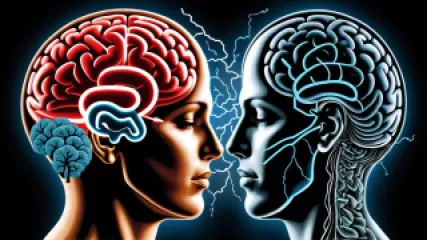Mastering Cognitive Dissonance Psychology: The Ultimate Guide
What is Cognitive Dissonance?
Cognitive dissonance is a psychological phenomenon that occurs when an individual holds conflicting beliefs, attitudes, or values. This state of cognitive discomfort often arises when a person's actions or behaviors contradict their deeply held beliefs or when they are confronted with information that challenges their existing beliefs.
First proposed by psychologist Leon Festinger in the 1950s, cognitive dissonance theory suggests that individuals have an innate drive to maintain internal consistency and avoid the discomfort associated with conflicting thoughts. When faced with cognitive dissonance, people experience psychological tension and are motivated to reduce it by either changing their beliefs, modifying their behavior, or rationalizing their thoughts.
The Causes of Cognitive Dissonance
Cognitive dissonance can arise from various situations and experiences in our everyday lives. Here are some common causes:
- Conflicting beliefs: When individuals hold two or more contradictory beliefs simultaneously, it creates cognitive dissonance. For example, someone who believes in the importance of environmental conservation but still drives a gas-guzzling car may experience this conflict.
- Effort justification: Cognitive dissonance can occur when individuals engage in activities that require significant effort or sacrifice. They may experience dissonance if they have to justify the effort they put in, especially if the outcome does not align with their expectations.
- Social pressure: People often conform to societal expectations and norms. When individuals find themselves acting in a manner that contradicts their personal beliefs due to social pressure, cognitive dissonance arises.
- Information inconsistency: In today's digital age, we are constantly bombarded with information from multiple sources. When individuals encounter conflicting information that challenges their existing beliefs, it can lead to cognitive dissonance.
Overcoming Cognitive Dissonance
Cognitive dissonance can be uncomfortable and lead to stress and anxiety. However, there are strategies individuals can employ to overcome cognitive dissonance and achieve a sense of harmony in their thoughts and actions:
1. Recognize and acknowledge the dissonance
The first step in overcoming cognitive dissonance is to recognize and acknowledge its presence. Take the time to reflect on the conflicting beliefs or behaviors that are causing discomfort. By acknowledging the dissonance, you open the door to resolving it.
2. Seek out additional information
Expand your knowledge and understanding of the topic at hand. Engage in research, read books or articles, and seek out different perspectives. The more information you gather, the better equipped you will be to evaluate and potentially resolve the cognitive dissonance.
3. Reevaluate and challenge your beliefs
Examine your beliefs and values critically. Consider whether they are based on sound evidence or if they are influenced by biases or social conditioning. Questioning and challenging your beliefs can help you identify areas of inconsistency and work towards resolving the dissonance.
4. Modify your behavior
If your behavior is in conflict with your beliefs, consider making changes to align them. This could involve adjusting your actions, habits, or lifestyle choices to better reflect your core values. By bringing your behavior in line with your beliefs, you can reduce cognitive dissonance.
5. Find common ground
Look for areas of agreement or common ground between your conflicting beliefs or attitudes. Emphasize the shared values or principles that underpin both sides of the dissonance. By focusing on the commonalities, you can bridge the gap and reduce the discomfort of cognitive dissonance.
6. Seek social support
Talk to trusted friends, family members, or professionals who can provide guidance and support. Sharing your thoughts and concerns with others can help you gain new perspectives, receive validation, and find constructive ways to resolve cognitive dissonance.
The Importance of Addressing Cognitive Dissonance
Overcoming cognitive dissonance is essential for personal growth and well-being. Here are a few reasons why addressing cognitive dissonance is important:
1. Emotional well-being
Cognitive dissonance can lead to feelings of stress, guilt, and anxiety. Resolving the conflict between conflicting beliefs or behaviors can help improve emotional well-being and reduce psychological distress.
2. Authenticity and self-integrity
Aligning your thoughts, beliefs, and actions promotes authenticity and self-integrity. Living in harmony with your values and principles enhances your sense of self and fosters a greater sense of purpose and fulfillment.
3. Enhanced decision-making
Addressing cognitive dissonance allows you to make more informed and rational decisions. By critically evaluating your beliefs and being open to new information, you can make choices that align with your core values and long-term goals.
4. Growth and personal development
Resolving cognitive dissonance often requires self-reflection, intellectual curiosity, and personal growth. It challenges you to examine your beliefs, confront inconsistencies, and expand your understanding of the world, leading to personal development and growth.
Seeking Cognitive Dissonance Treatment
If cognitive dissonance significantly impacts your daily life and well-being, it may be beneficial to seek professional help. A trained psychologist or therapist can assist you in exploring the underlying causes of cognitive dissonance and guide you through effective strategies for resolving it.
Therapeutic approaches such as cognitive-behavioral therapy (CBT) can help individuals identify and challenge irrational beliefs, develop coping mechanisms, and work towards reducing cognitive dissonance. Additionally, mindfulness practices and relaxation techniques may also be beneficial in managing the distress associated with cognitive dissonance.
"The greatest enemy of knowledge is not ignorance; it is the illusion of knowledge." - Stephen Hawking
Conclusion
Cognitive dissonance is a common psychological phenomenon that can cause discomfort and conflict within individuals. By understanding its causes and employing strategies to overcome cognitive dissonance, individuals can achieve greater harmony in their thoughts, beliefs, and actions. Addressing cognitive dissonance is crucial for personal growth, emotional well-being, and making informed decisions that align with one's core values. If cognitive dissonance becomes overwhelming, seeking professional help can provide valuable guidance and support on the journey towards resolution and self-integration.






